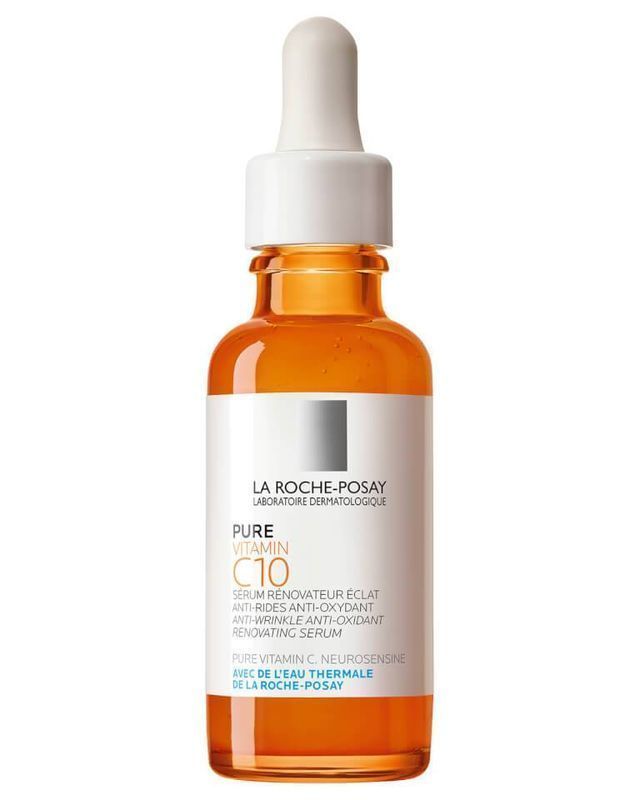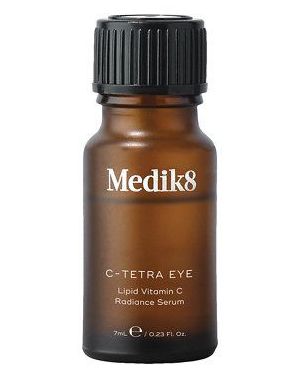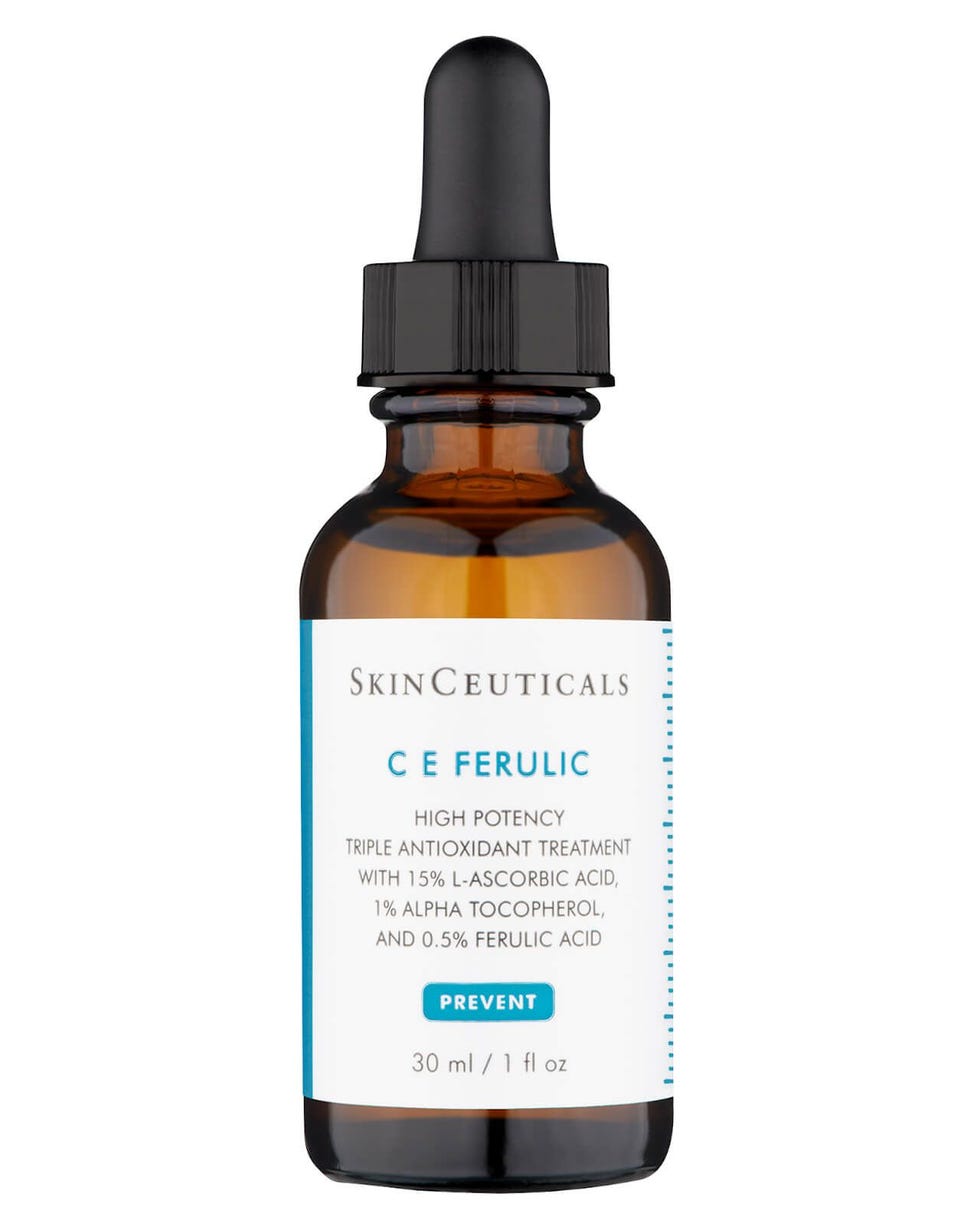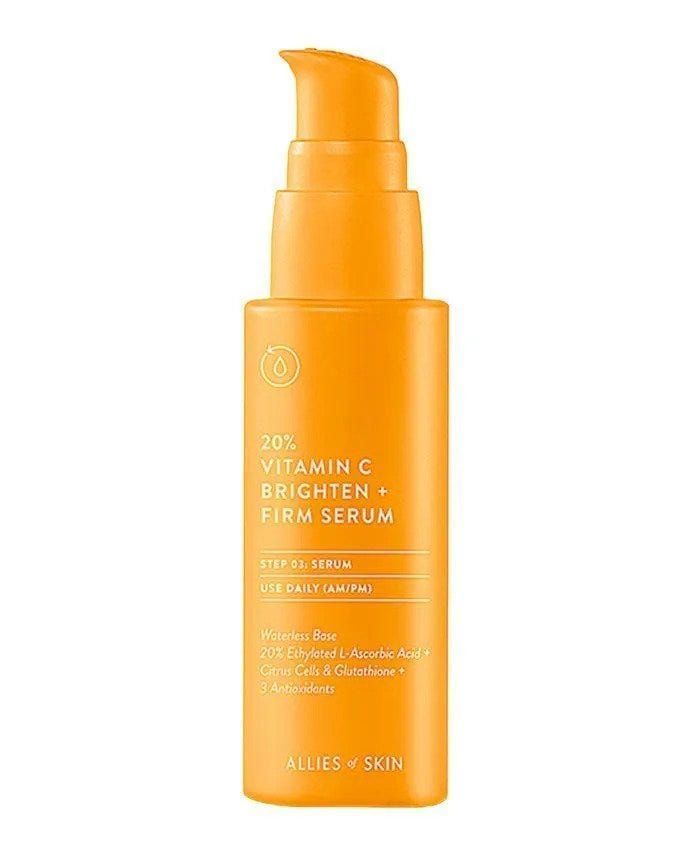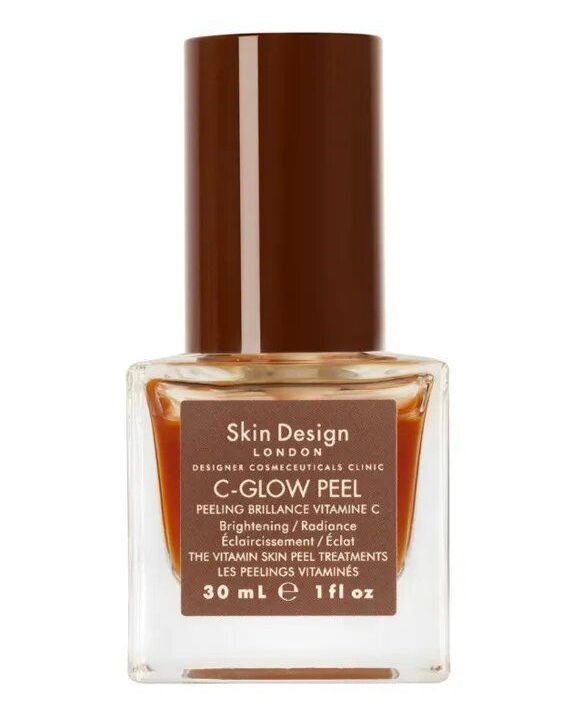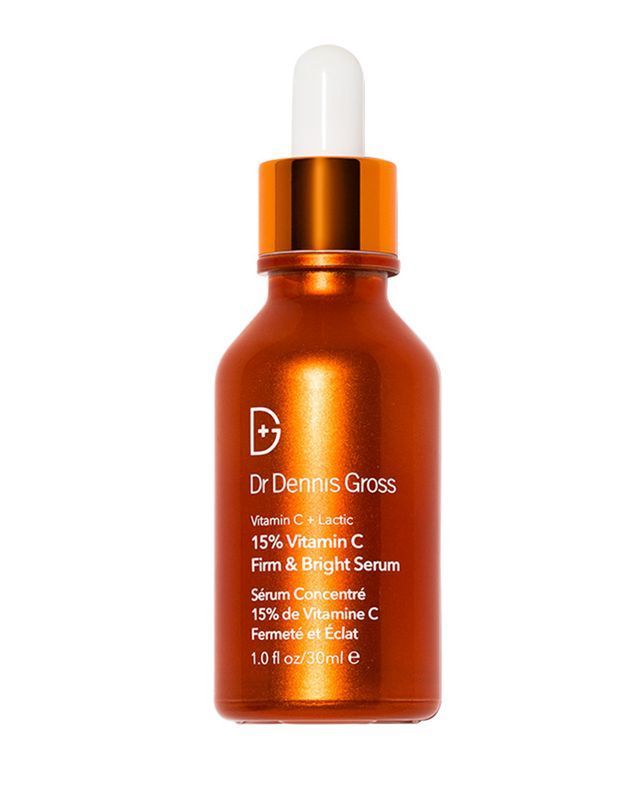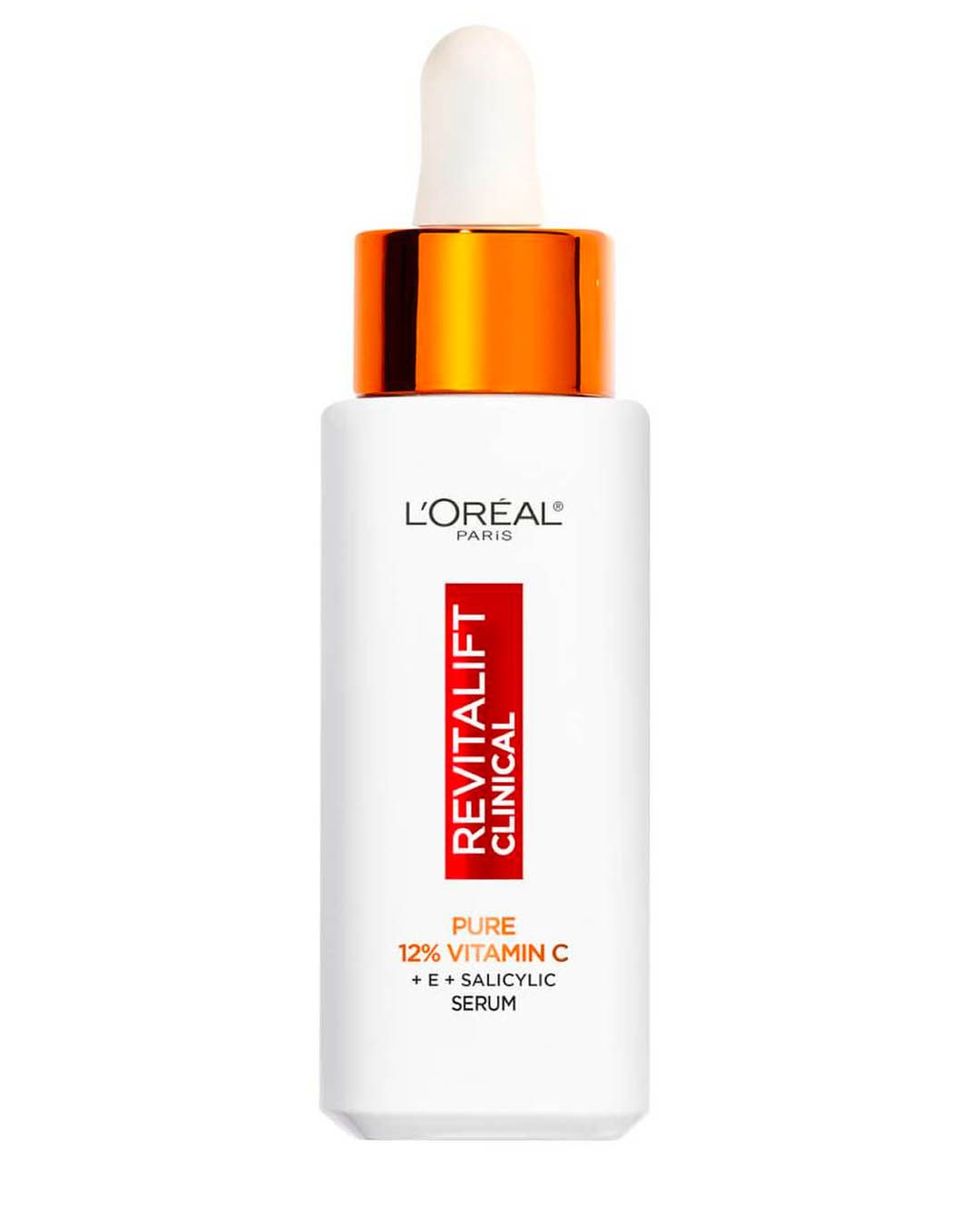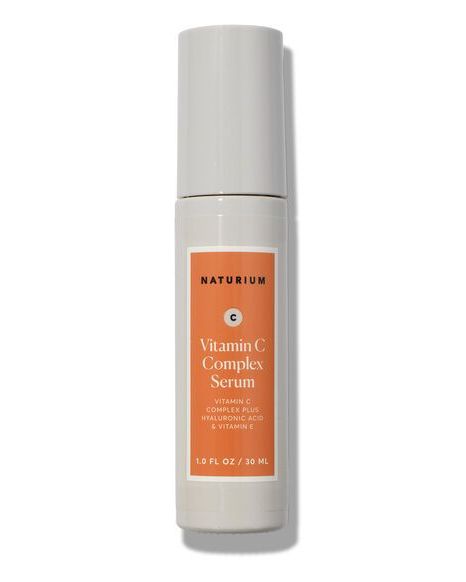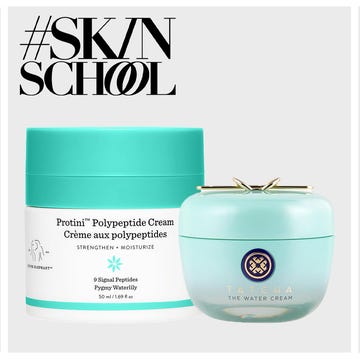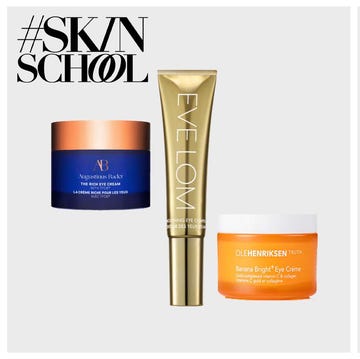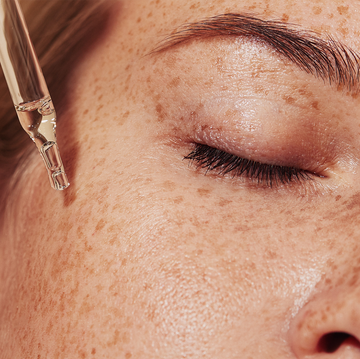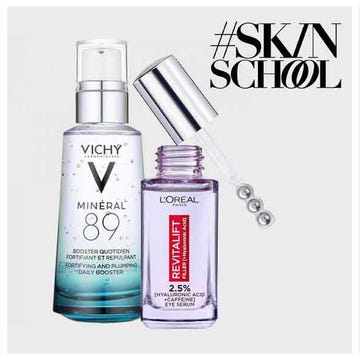We earn a commission for products purchased through some links in this article.
#SkinSchool: The best best vitamin C serums, and exactly how they work
It's a commonly-used ingredient in skincare formulas, but is this powerhouse worth the space in your routine?
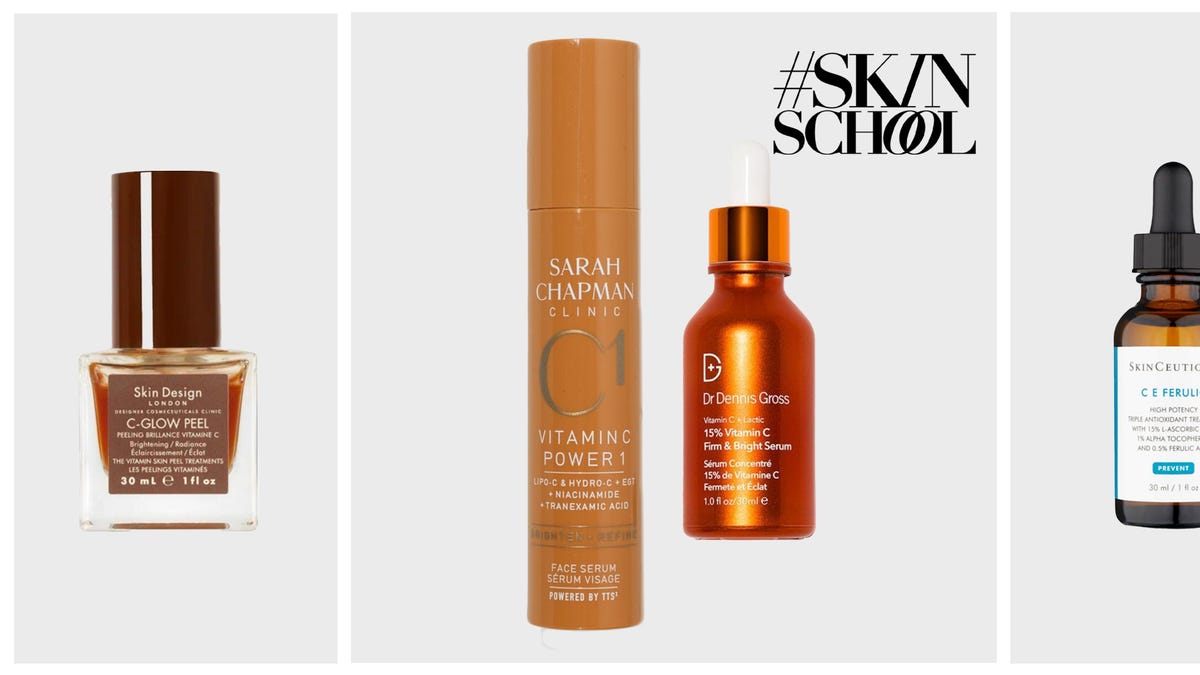
By now, the skincare benefits of vitamin C have been widely extolled: this powerhouse antioxidant has the ability to brighten skin, neutralise free radicals, and fade acne scars and hyperpigmentation. Consequently, it's safe to say that many of us can benefit from incorporating one of the best vitamin C serums into our daily routines.
Yet reaping the benefits of vitamin C (also known as ascorbic acid), is not quite as easy as slathering on a face serum and waiting eagerly for your radiance revival. Here, we reveal everything you need to know about harnessing its potent potential in full, as well as the best vitamin C skincare for the job.
Vitamin C products: the Bazaar top five
What is vitamin C and how does it work?
Vitamin C is the primary antioxidant in human skin, and is an essential nutrient for good health, explains aesthetic doctor and educator in cosmetic dermatology Dr. Amiee Vyas. “It is required for many bodily functions including the production of collagen – a vital component in many of our tissues, from skin to ligaments and tendons, cartilage and bone, and even the corneas in our eyes.” As vitamin C is water soluble and not stored in the body, we need to obtain it from external sources: through food and topical application.
What are the benefits of vitamin C serums?
Whether you're looking for a straightforward formula or one laced with extra actives, there is a vitamin C out there for you. Dr Vyas explains the benefits of incorporating a vitamin C serum in your routine.
- It delivers a photoprotective, antioxidative, anti-pigmentary and overall anti-ageing effect.
- It can promote collagen and elastin production, as well as reduce collagen damage in the skin’s dermis. This results in firmer, smoother and more resilient skin.
- It's an anti-pollution powerhouse. As a potent antioxidant, it can neutralise free radicals from pollution, UV radiation and blue light, plus other aspects of our daily lives.
- It can help fade and prevent dark spots, or hyperpigmentation. Vitamin C reduces melanin production through its action as a tyrosinase inhibitor, brightening skin and preventing oxidation of existing pigmentation so it doesn’t become darker.
Which skin types should try vitamin C?
“Non-sensitive skin types with a strong skin barrier can benefit best from vitamin C skincare," says Dr. Vyas. In fact, most of us looking to brighten skin, prevent wrinkles or fade pigmentation should be on board with this brilliant ingredient.
"However, be careful with sensitive skin and fragile skin barriers,” she cautions, highlighting dry skin conditions such as eczema, dermatitis and rosacea as potentially problematic. “I always recommend a patch test if you have any of these. It’s better to strengthen your skin barrier using other ingredients first. This is because most topical treatments have a pH of around two (very acidic), which can cause flare-ups of conditions like eczema, and even acne.”
When should you use a vitamin C serum?
A vitamin C serum should be used daily, and optimally as part of your a.m. skincare routine, says Dr. Ashwin Soni, a leading plastic surgeon, aesthetics expert and founder of The Soni Clinic. "It should be applied after cleansing and prior to your day cream and SPF."
Often, "some new generation vitamin C serums are formulated with other antioxidants, such as niacinamide, for enhanced protection against free radical damage from external stressors such as UV and pollution," Dr. Soni notes – "therefore you really want to use it in the mornings".
Ideally, it should be used consistently, Dr. Soni continues. "As vitamin C is used to protect against accelerated ageing, we want to use it daily."
Is vitamin C a stable active?
Vitamin C is notoriously unstable as an ingredient, meaning heat, light and air can easily degrade its efficacy. For this reason, it pays to delve a little deeper into formulations and packaging, to ensure you’re getting a potent concoction with longevity.
Vitamin C isn’t the easiest ingredient for the skin to absorb either. “Being water-soluble it's repelled by our waterproof skin barrier. It is only absorbed by the skin when the pH level of the formula is below four," explains Dr. Vyas.
How to choose the right vitamin C serum
- Look for products in airtight, opaque packaging to keep the formula fresh.
- L-ascorbic acid is the most commonly used form of stable vitamin C. Other stable vitamin Cs worth looking out for are tetrahexyldecyl ascorbate, 3-O ethyl ascorbic acid, and ascorbyl tetraisopalmitate.
- Consider your skin type. Oily and combination complexions should look to lightweight gel or water textures while those with dry skin will want a more hydrating formula.
- Look at the formula as a whole; ingredients such as vitamin E, ferulic acid, peptides and niacinamide will help improve the efficacy of your product.


